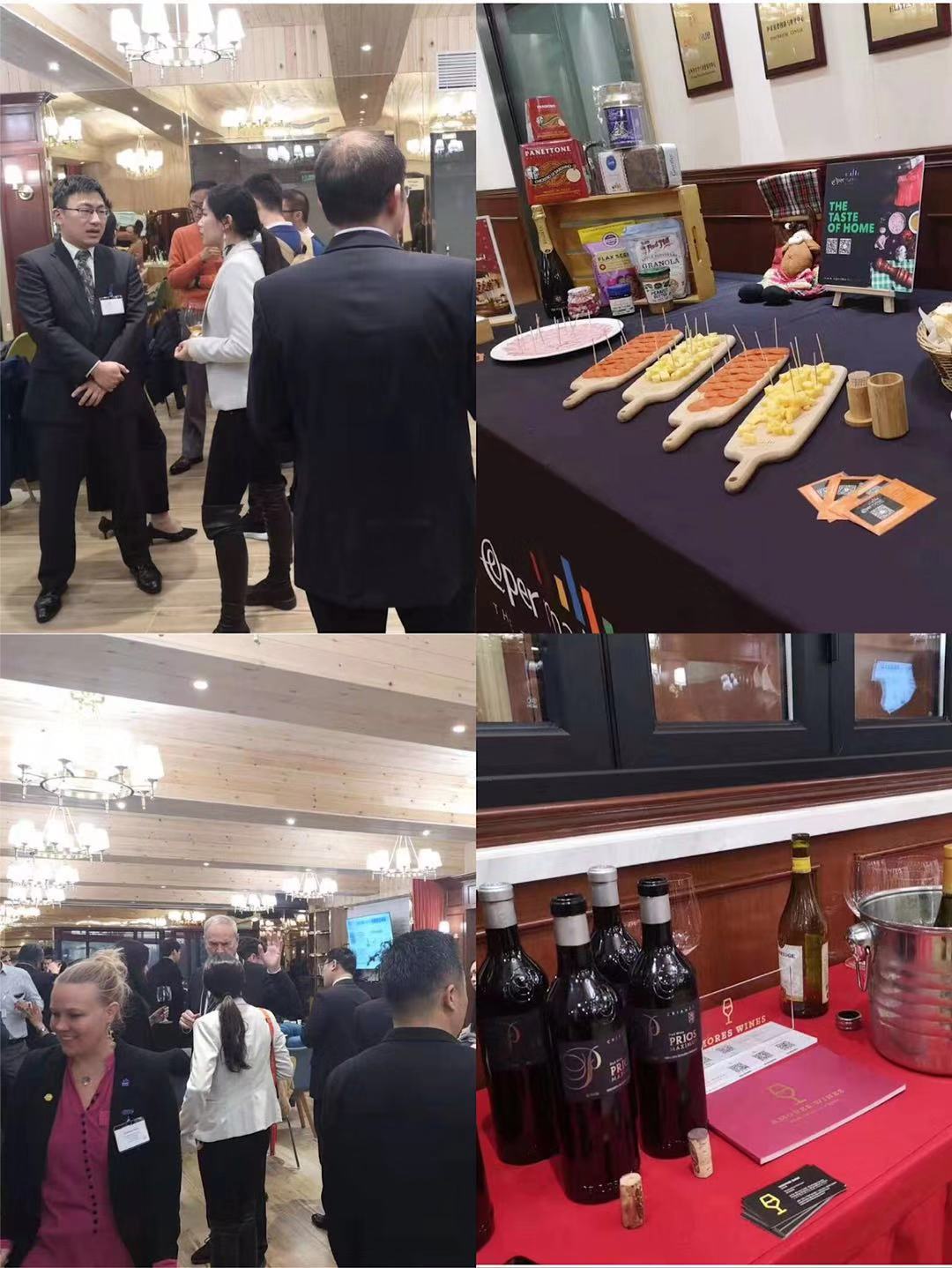Increased China’s Environmental Compliance
Increased China’s Environmental Compliance
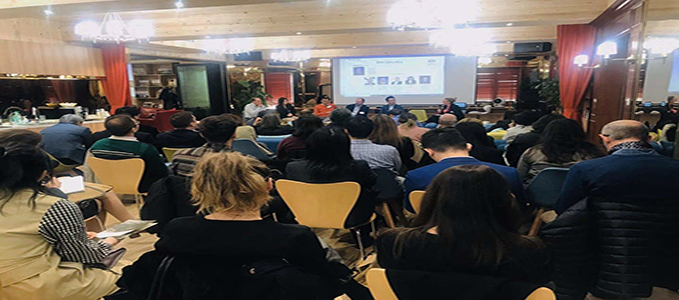
On 19 November, A&Z hosted our “China’s Environmental Law: How Does It Affect Your Business?” event at OCEA HUB in Shanghai. It was organized by A&Z Law Firm with the kind sponsorship and support of numerous partners. Our Firm warmly thank you all of them that made possible the event.
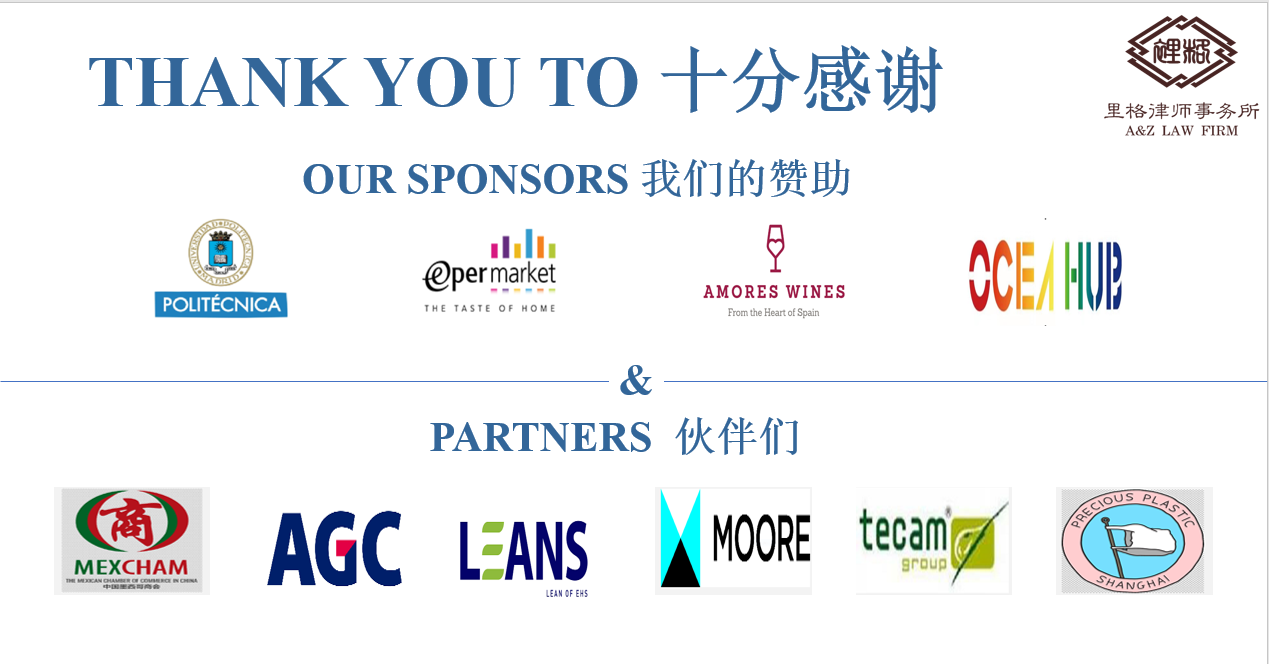
The event kicked off with Ms. Xiuxiu (Merry) Zhang, Environmental Attorney at A&Z, presenting China’s main environmental legal updates. She provided useful take-away points concerning:
· The recent regulatory changes such as the Soil Pollution Prevention and Control Law (2018 Issued; 2019 into effect) (土壤污染防治法(2018年发布,2019年实施)), Atmospheric Pollution Prevention and Control Law (2018 Revision) 大气污染防治法(2018年修订), Water Pollution Prevention and Control Law (2017 Revision) 水污染防治法(2017年修订), and Law on Prevention and Control of Environmental Pollution by Solid Waste(2016 Revision/ 2019 Revision Draft)固体废物污染防治法(2016年修订,2019年草案已公布);
· Environmental enforcement, particularly environmental enforcement with teeth (“长牙齿”的环境执法), the Central Environmental Protection Inspection (中央环保督察), and the Civil Supervision (民间监督补充执法或多元共治). In addition, to understand what to expect during an inspection and how to follow it, Ms. Zhang showed examples of environmental penalties in Shanghai. The total amount of the penalties reached about 500,000,000 RMB in 2018; violation mainly tackled air, waste management, Environmental Impact Assessment (EIA) issues, and water.
· The EIA has been reformed. Ms. Zhang explained the differentiated/classified management, commitment system for EIA Examination and Approval, and the process control method. The pollutant discharge permit was mentioned too. China has built up the management information platform of discharge permit, and basically completed the issuance of relevant permits for 15 industries including thermal power and papermaking in 2017. In 2020 all industries must complete the application.
· Different impacts to businesses where stated, for instance, frequent inspections, less local protectionism, more strict enforcement, but optimizing the Business Environment Ordinance (January 1st, 2020) is good news for companies. Ms. Zhang emphasized the need to verify local regulations, particularly deadlines, on permit application since there are variations. For instance, new projects must apply for a permit before the actual discharge of the pollutant. The main contents related to pollutant discharge in the EIA documents and Approvals should be included in the permit, and the implementation of the discharge permit should be used as an important basis for post-assessment of EIA implementation.
· How to manage environmental risk especially regarding regulatory tools including public interest litigation and ecological compensation regime. Ms. Zhang explained the environmental judicial trend in China evolving public interest litigation brought by E-NGOs and prosecutors, as well as ecological compensation established by the government. It was highlighted some recent matters that companies must be aware of:
o A judicial interpretation: The Supreme People's Court and Procuratorate issued the Interpretation of Issues on the Applicable Laws in Procuratorial Public interest Litigation cases最高人民法院、最高人民检察院发布《关于检察公益诉讼案件适用法律若干问题的解释》.
o Environmental damage compensation system. Since 2015, the governments were authorized to sue the companies within 7 provinces as a trial (《生态环境损害赔偿制度改革试点方案》(中办发〔2015〕57号)). This system became effective nationally widespread since January 2018. On June 5th, 2019, Several Provisions of the Supreme People's Court on the Trial of Cases on Compensation for Damage to the Ecological Environment (for Trial Implementation) was issued《最高人民法院关于审理生态环境损害赔偿案件的若干规定(试行)》.
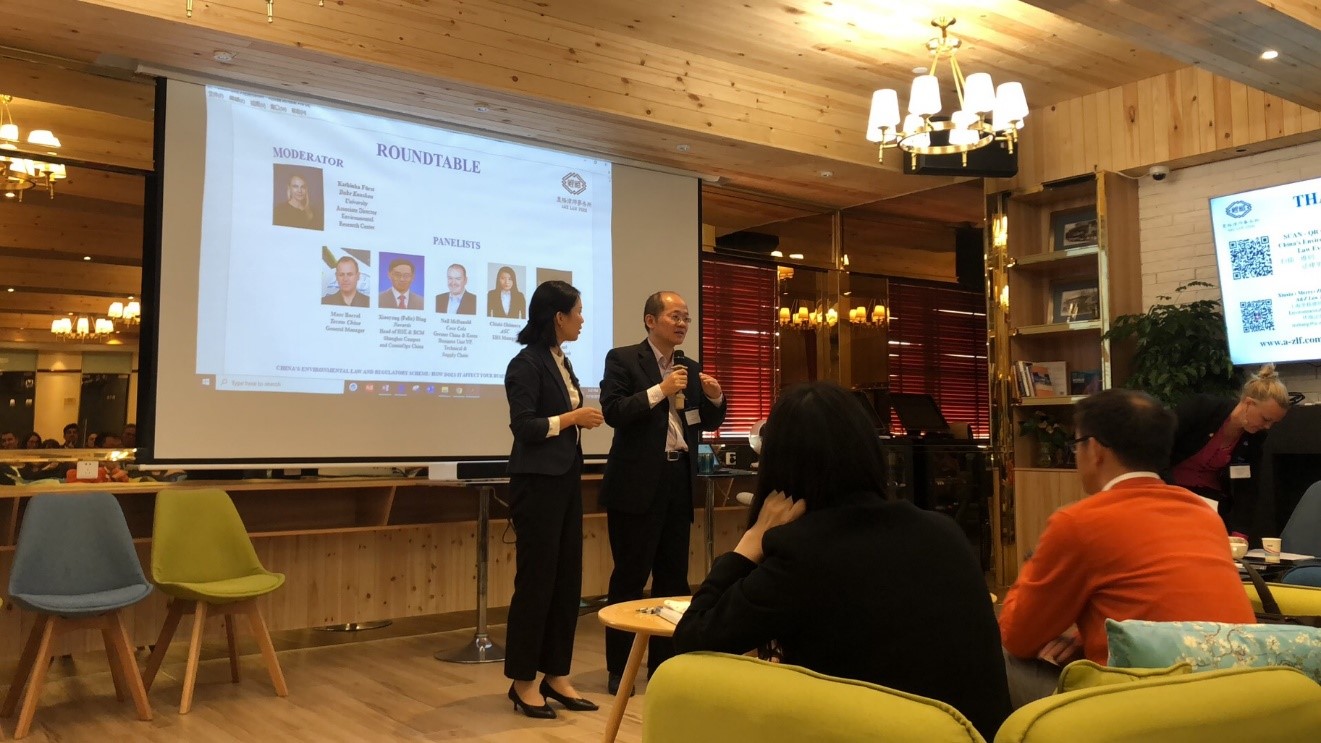
In the second part of the event, an open discussion panel took place. The roundtable was particularly especial because as guests we had the following participants:
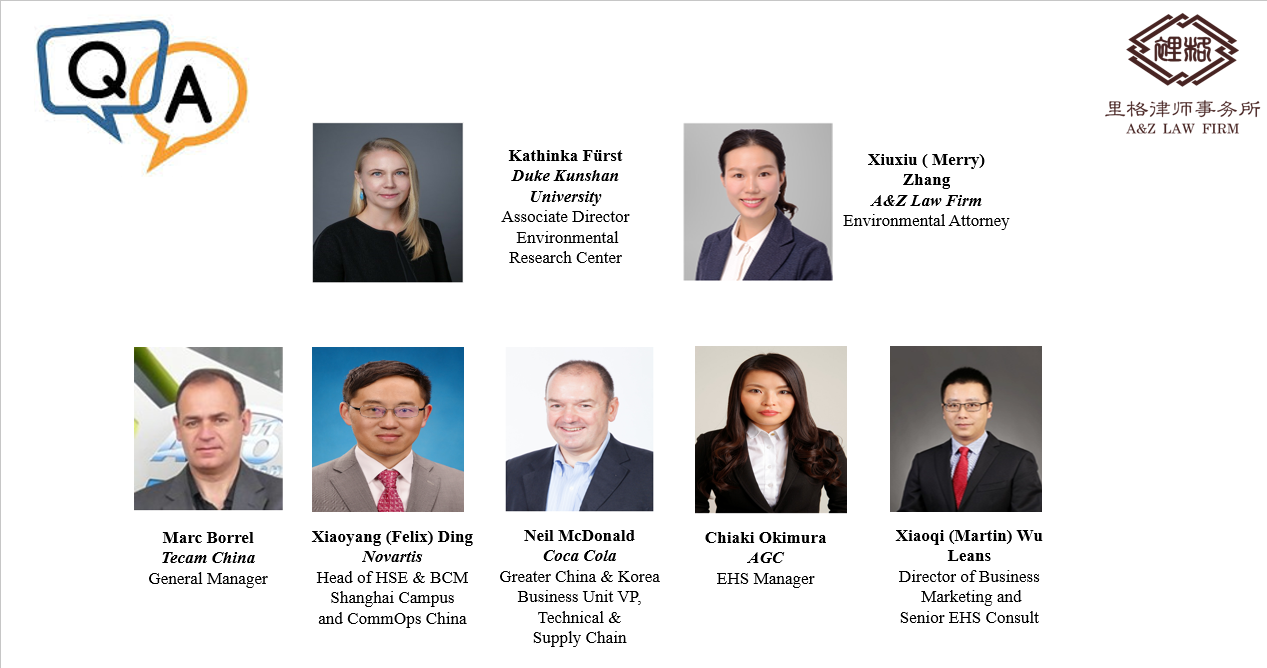
Business leaders from different industries shared their latest business cases. They presented insights on strategies and solutions that companies could take to manage environmental risks in their business and supply chains in China. Speakers such as Mr. Borrell, Mr. Din, and Mr. McDonald explained how, mainly, foreign companies fulfill the technical and legal requirements necessary for compliance by using practical examples.
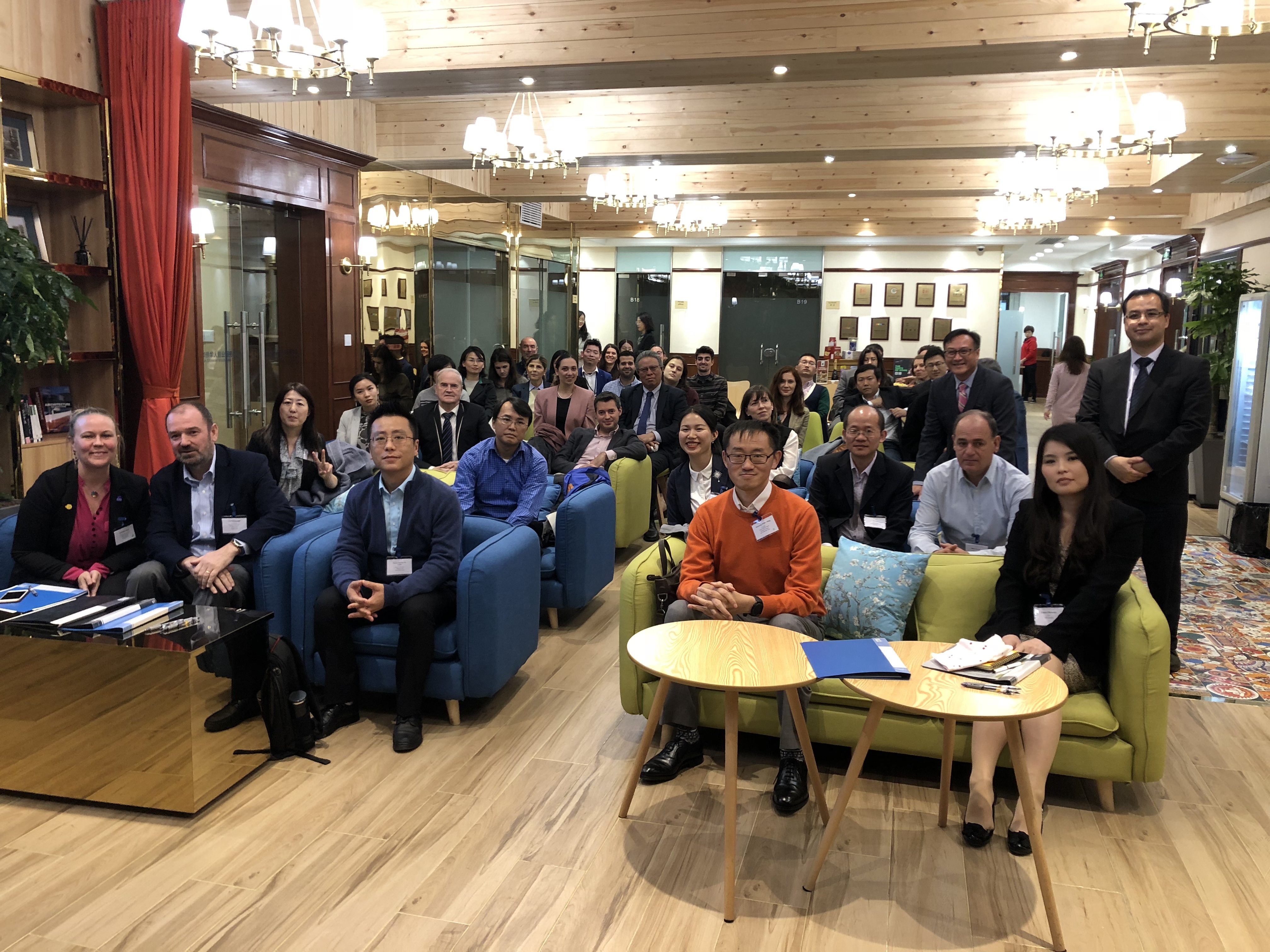
During the discussion and networking, the attendees had the opportunity to interact with the moderator, panelists, A&Z environmental attorneys, and discussed pressing issues from liabilities with recent laws and regulation enforcement to concrete measures to avoid risks and make sure the company is following the current requirements and standards. Ms. Zhang highlighted throughtout the entire event three key concepts:
- — KEEP UPDATED to environmental regulations and measures;
- — MORE COMMUNICATION with governments and experts;
- — LONG-TERM BENEFIT, companies must look into this, not just preserving a short-term benefit.
Despite the present situation of environmental concerns in China, the country seeks to further the policy of balancing economic growth with environmental preservation. Events and discussions like these are of crucial importance in order to achieve a greater understanding and develop forward-looking environmental guidelines.
